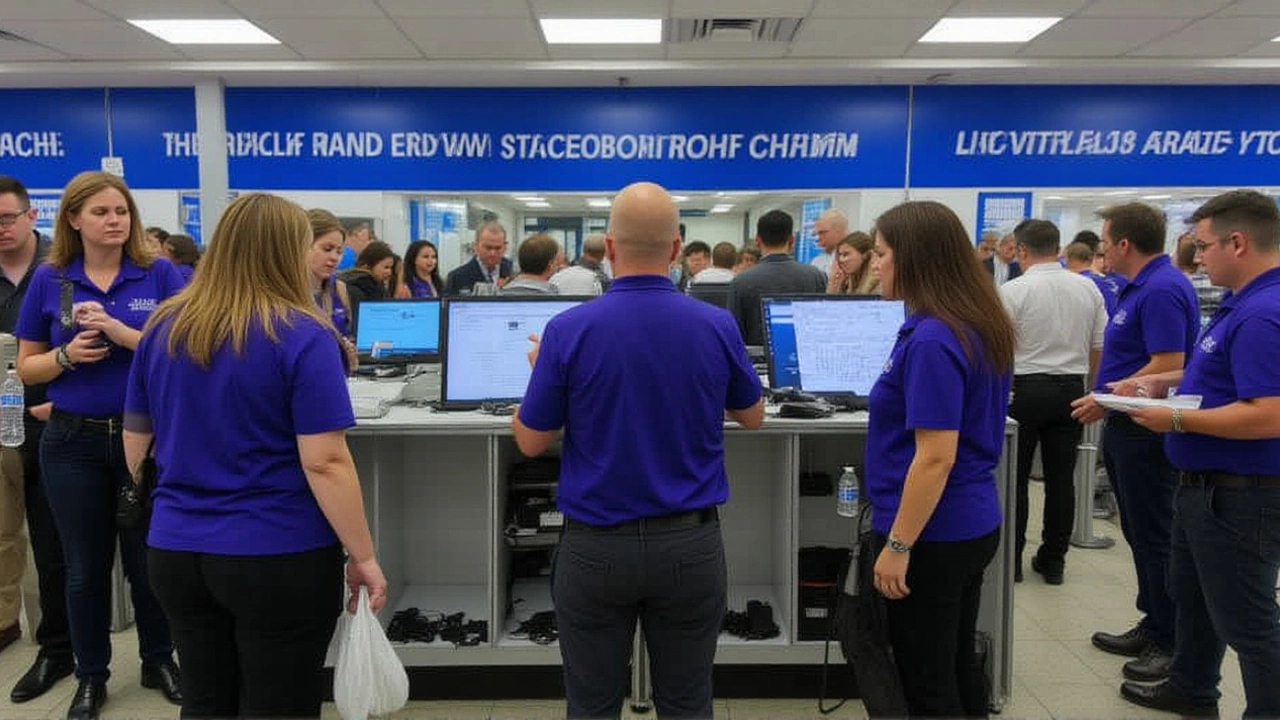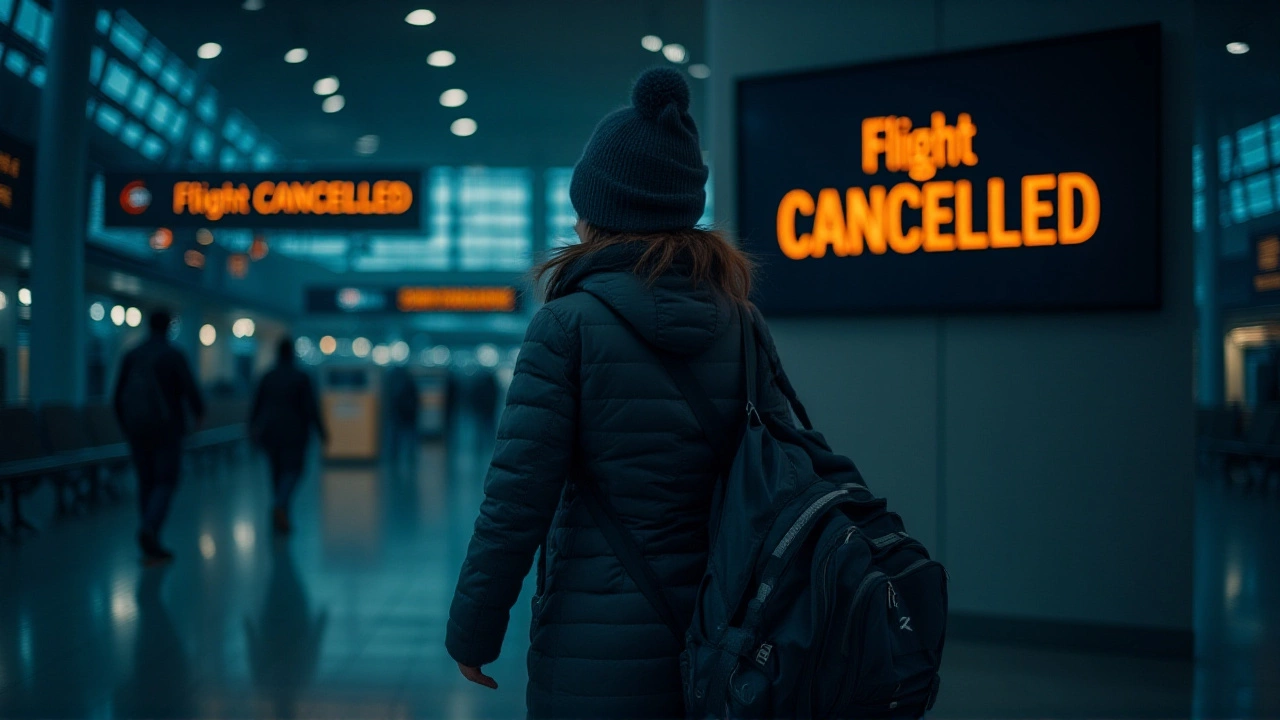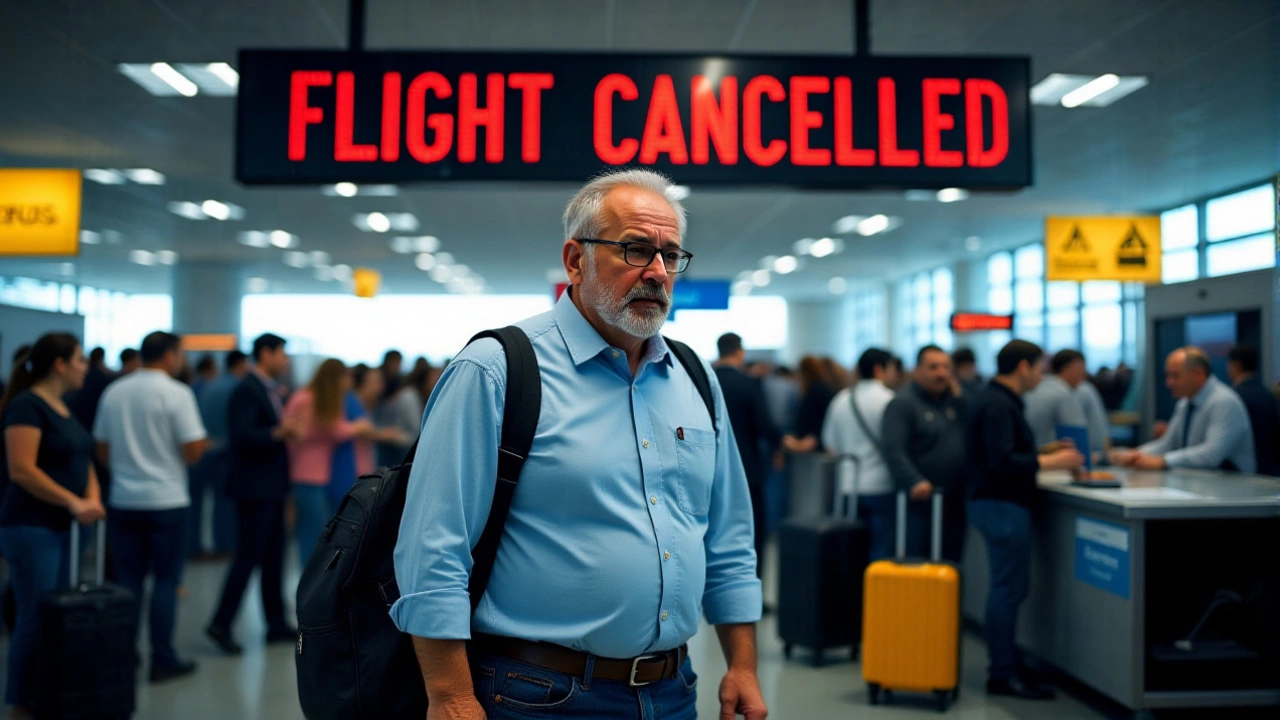
On Sunday, October 19, 2025, the Federal Aviation Administration announced staffing‑related ground delays at five of the nation’s busiest airports after a government shutdown left roughly 13,000 air traffic controllers working without pay.
Administrator Michael P. Whitaker confirmed to Rolling Out that the lack of paid staff forced the agency to impose restrictions at Chicago O'Hare International Airport, Dallas/Fort Worth International Airport, Hartsfield‑Jackson Atlanta International Airport, Newark Liberty International Airport and McCarran International Airport in Las Vegas.
Background: The shutdown’s ripple through the National Airspace System
The 2025 U.S. government shutdownUnited States began on October 1 after Congress failed to approve a federal budget. While nine departments felt the pinch, the Department of Transportation’s budget shortfall hit the FAA hardest because air traffic controllers are federal employees.
Historically, the National Airspace System has weathered funding gaps, but the 2018‑2019 shutdown saw only about 1,100 cancellations over a 35‑day stretch. This time, 13,000 controllers across more than 450 facilities were on unpaid status, creating a staffing shortage unprecedented in scale.
Immediate impact: Numbers, airports, and passenger chaos
Travel and Tour World logged 7,352 flight delays and 110 grounded flights on October 19 alone – roughly 25 % of the nation’s scheduled departures that day. Average delay times topped 90 minutes at the most affected hubs.
- Chicago O'Hare: 1,521 delayed departures, 15 grounded flights.
- Dallas/Fort Worth: 1,238 delayed departures, 12 grounded flights.
- Atlanta (Hartsfield‑Jackson): 1,306 delayed departures, 13 grounded flights.
- Newark Liberty: 942 delayed departures, 30 grounded flights.
- Las Vegas (McCarran): 745 delayed departures, 40 grounded flights.
Passengers stranded in secondary cities such as Nashville, New Orleans, Huntsville and Memphis reported long wait times for rebooking, with many missing connecting flights and business commitments.
Airline responses and passenger fallout
Delta Air Lines, the dominant carrier at Atlanta, activated contingency crews and swapped aircraft where possible, but CEO Edward H. Bastian said the airline “could not fully mitigate the ripple effect.” United Express (under United Airlines Holdings), American Airlines Group, Southwest Airlines and Alaska Air Group faced similar constraints, each reporting a share of the 110 grounded flights.
TravelWeekly noted that airlines shifted crews from less‑impacted routes and offered vouchers to affected travelers, yet the sheer volume of delays outpaced those measures. Lufthansa’s inbound flights to Newark also suffered, though the German carrier did not disclose specific cancellation figures.

Economic cost and industry outlook
Analysts at Airlines for America, led by President Nicholas E. Calio, warned that each day of staffing‑related disruptions could cost the U.S. aviation sector over $50 million in operational losses and passenger compensation. The $7,352 delays translate to roughly 29,000 delayed passenger‑hours, a figure that regulators will likely use to gauge the shutdown’s financial fallout.
While the Transportation Security Administration reported no checkpoint issues, the FAA stressed safety remained its top priority and noted no incidents directly linked to the staffing shortage as of October 20.
What’s next: Negotiations, funding and the road to normalcy
As of 9:00 PM UTC on October 20, the shutdown persisted with no clear end in sight. The Office of Management and Budget, headed by Shalanda D. Young, and the Department of Transportation’s Secretary Pete Buttigieg entered emergency talks with airline executives to explore temporary funding mechanisms.
The FAA’s Air Traffic Organization, overseen by Senior Vice President Timothy A. Arel, warned that delays could extend through at least Tuesday, October 21, unless Congress approves a short‑term appropriations bill. Industry groups are urging a swift resolution, citing the risk of eroding consumer confidence and the logistical nightmare of rescheduling tens of thousands of flights.

Key Facts
- Date of major delays: October 19, 2025
- Airports affected: O'Hare, DFW, Atlanta, Newark, Las Vegas
- Total delayed flights: 7,352
- Grounded flights: 110
- Air traffic controllers without pay: ~13,000
Frequently Asked Questions
How does the shutdown affect passengers at smaller regional airports?
Even airports outside the five‑airport list saw ripple effects because many flights route through the major hubs. Passengers at regional airports like Nashville International or Huntsville International experienced longer wait times for connections, and some were forced onto overnight stays due to missed links.
What is the FAA’s plan if the shutdown continues beyond October 21?
The FAA has indicated it will continue to prioritize safety while imposing additional ground‑delay programs at other busy facilities. Controllers may be pulled from lower‑traffic centers to keep the busiest routes operational, but further delays are expected until funding is restored.
How do these delays compare to those during the 2018‑2019 shutdown?
The 2018‑2019 shutdown produced about 1,100 cancellations over 35 days, whereas the October 19, 2025 event logged 7,352 delays in a single day. The scale and concentration of disruptions are far greater this time, reflecting a larger number of unpaid controllers and higher baseline traffic volumes.
Which airlines are bearing the highest financial hit?
Delta Air Lines, with its massive Atlanta hub, reported the steepest operational strain, followed closely by United Express and American Airlines, whose fleets also heavily use the affected airports. Southwest and Alaska Air Group saw fewer grounded flights but still faced sizable re‑booking costs.
What legislative steps could end the shutdown?
Congress must pass a short‑term continuing resolution to fund the federal government, including the Department of Transportation. Lawmakers have floated a bipartisan package that would allocate $12 billion for FAA operations, which, if approved, should lift the staffing constraints and restore normal flight schedules.

Write a comment